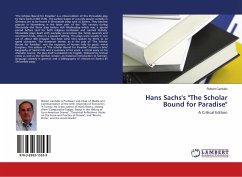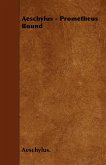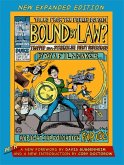"The Scholar Bound for Paradise" is a critical edition of this Shrovetide play by Hans Sachs (1494-1576). The earliest stages of a purely secular comedy in Germany are to be found in Shrovetide plays such as Sachs's. They became popular in Nuremberg in the latter part of the 15th century during Shrovetide--the three days before Ash Wednesday--which was a special period before Lent for both religious confession and carnival festivity. Shrovetide plays dealt with everyday occurrences like family quarrels and courtroom trials, often in a peasant setting. The plays were usually in one act of about 400 irregular four-beat verse lines spoken by three to six typed characters. The dominant theme, as in the case of "The Scholar Bound for Paradise", was the exposure of human folly by good, moral burghers. This edition of "The Scholar Bound for Paradise" includes a brief biography of Sachs's life and a summary of his work; a critical essay on his dramatic oeuvre; the play itself translated into English, followed by textual notes as well as the German version; an historical introduction to German-language comedy in general; and a bibliography of criticism on Sachs's 85 Shrovetide plays.
Bitte wählen Sie Ihr Anliegen aus.
Rechnungen
Retourenschein anfordern
Bestellstatus
Storno






![The Other Side of Paradise Volume Two [Special Author's Uncut Edition] The Other Side of Paradise Volume Two [Special Author's Uncut Edition]](https://bilder.buecher.de/produkte/47/47124/47124693m.jpg)

![The Other Side of Paradise Volume One [Special Author's Uncut Edition] The Other Side of Paradise Volume One [Special Author's Uncut Edition]](https://bilder.buecher.de/produkte/47/47124/47124163m.jpg)